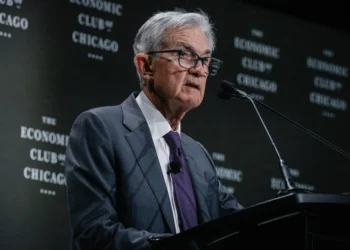President Donald Trump has announced in a Truth Social post that the United States will impose a 100% tariff on movies that are made outside of the country.
Trump did not specify when or how the tariff could be enacted. If he follows through with his threat, it would mark the first time he’s essentially imposed a tariff on a service rather than a good.
The step signals Trump’s willingness to extend protectionist trade policies into cultural industries, raising uncertainty for studios that depend heavily on international box-office revenue and cross-border co-productions.
“Our movie making business has been stolen from the United States of America, by other Countries, just like stealing ‘candy from a baby’.”
Donald Trump
In his post, Trump singled out California, saying the state “has been particularly hard hit!” He criticized Gavin Newsom, California’s Governor, as “weak and incompetent.” “In order to solve this long time, never ending problem, I will be imposing a 100% Tariff on any and all movies that are made outside of the United States,” Trump wrote. He did not provide further details on his plans.
Trump’s latest post renews a threat he made in May, when he said the US movie industry was “dying a very fast death.” At the time, he said that he was authorizing the Department of Commerce and US trade representative to start the process of instituting a 100% tariff.
The US President’s threat to impose such levies earlier in May with very few details, led to confusion among entertainment industry executives about whether it would apply to specific countries or all imports.
Studio executives told a news agency earlier this year that they were “flummoxed” by how a movie tariff might be enforced, given that modern films often use production, financing, post-production and visual effects spread across multiple countries.
The move has drawn skepticism from legal and trade analysts. Some argue films are a form of intellectual property and part of the global trade in services, an area where the US often runs a surplus, raising questions about the legal basis for tariffs.
Co-productions with foreign studios have also become more common, adding to doubts about how such films would be classified.
Trump’s remarks come shortly after he threatened a slew of new tariffs to be imposed this week on branded pharmaceutical products, furniture, as well as heavy trucks respectively.
Last Thursday, Trump said that he would slap separate tariffs ranging between 25% and 100% on branded pharmaceutical products, kitchen cabinets, upholstered furniture and heavy trucks.
These were to start on Wednesday, October 1, 2025, he added, with patented pharma products seeing 100% duties unless firms were building manufacturing plants in the United States.
Trump reiterated his threat on imported furniture, saying North Carolina “has completely lost its furniture business to China, and other Countries.”
Trump’s 100% Tariff To Upend Hollywood
Trump’s 100% tariff on Foreign-made Movies threatens to upend Hollywood’s global business model.
Hollywood is a major sector of the US economy, generating more than 2.3m jobs and $279bn in sales in 2022, according to data from the Motion Picture Association.
However, in the wake of the Hollywood strikes and the Covid pandemic – which changed how Americans consumed movies, opting to watch at home instead of in theaters – the industry has been struggling to regain momentum, industry insiders have said.
US box office gross topped out at just under $12 billion in 2018 before nosediving to just over $2 billion in 2020, when many theaters were shut down because of Covid.
Although theaters have rebounded, the number of releases is about half of what it was in 2019. The total domestic box office gross hasn’t eclipsed $9 billion since.Warner Bros.
Discovery, CNN’s parent company, has raked in $4 billion in global box office sales so far this year, the first studio to hit that level.
READ ALSO: Bryan Acheampong’s Camp Dismisses Early NPP Poll Results






















